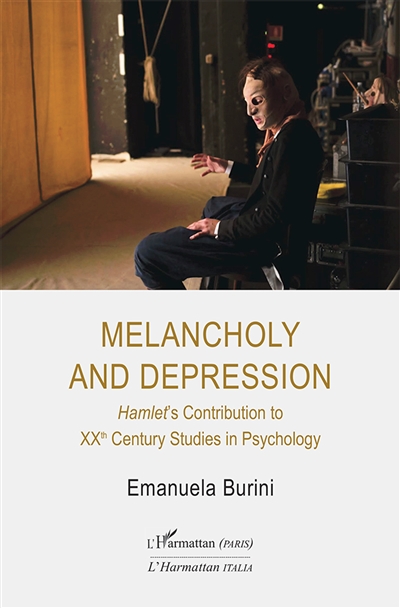en savoir plus

Permet à tous ses détenteurs d'obtenir 5% de réduction sur tous les livres lors du retrait en magasin (réduction non cumulable avec les réductions de type étudiant).
Offre également un certain nombre d'avantages auprès de nos partenaires.
Avec les favoris, retrouvez dans un espace les sélections effectuées au fur et à mesure de vos navigations dans le site.
Constituez pour votre usage personnel vos listes de livres en prévisions d'achats futurs et votre sélection d'articles, dossiers, événements, vidéos ou podcasts préférés ou à découvrir plus tard...
Il suffit simplement de cliquer sur "Ajout Favori" sur chaque page qui vous intéresse pour les retrouver ensuite dans votre espace personnel.
Requiert un compte Mollat
Requiert un compte Mollat
Melancholy and depression : Hamlet's contribution to XXth century studies in psychology
Auteur : Emanuela Burini
en savoir plus
Résumé
Rendu impuissant par une mélancolie qui l'empêche d'agir et d'accomplir sa vengeance, le personnage d'Hamlet a inspiré plusieurs études psychologiques et psychanalytiques au cours du XXe siècle. L'auteure étudie les thématiques développées autour de la personnalité fascinante de ce héros, relatives aux émotions négatives, à la dépression, aux conflits existentiels ou à la formation de l'ego. ©Electre 2025
Quatrième de couverture
Shakespeare's Hamlet (1600-1601) inspired innovative psychological and psychoanalytic studies during the XXth century, related to the Oedipus Complex and the theme of desire (S. Freud, J. Lacan).
Hamlet, with his unique ability to speculate and incapacity to make decisions, became the emblem of existential restlessness and inner conflict that precedes choice ; as a dark and gloomy soul, his melancholy had a very strong appeal in studies of the formation of identity and melancholy-depression seen as the outcome of expulsion from a symbolic order.
Hamlet was also read as the tragedy that foreshadows the notion of moral conscience (Act III) widely investigated and theorized in the XXth century in the context of studies between consciousness and societies developed in the fields of neurobiology and ethics.
The themes of negative emotions (sadness, hatred, melancholy) present in Hamiet's tragedy - the aspects of desire and psychoanalytic change to which Hamlet's melancholy personality made a considerable contribution - are first introduced, and then analysed in more depth through some works of S. Freud (Mourning and Melancholy, 1917) and J. Lacan (Seminary VI. Desire and its Interpretation, 1958-1959).
Fiche Technique
Paru le : 17/02/2021
Thématique : Essais albums sur le théâtre
Auteur(s) : Auteur : Emanuela Burini
Éditeur(s) :
L'Harmattan
L'Harmattan Italia
Collection(s) : Psykhé
Série(s) : Non précisé.
ISBN : 978-2-336-31897-4
EAN13 : 9782336318974
Reliure : Broché
Pages : 47
Hauteur: 21.0 cm / Largeur 14.0 cm
Épaisseur: 0.3 cm
Poids: 70 g

